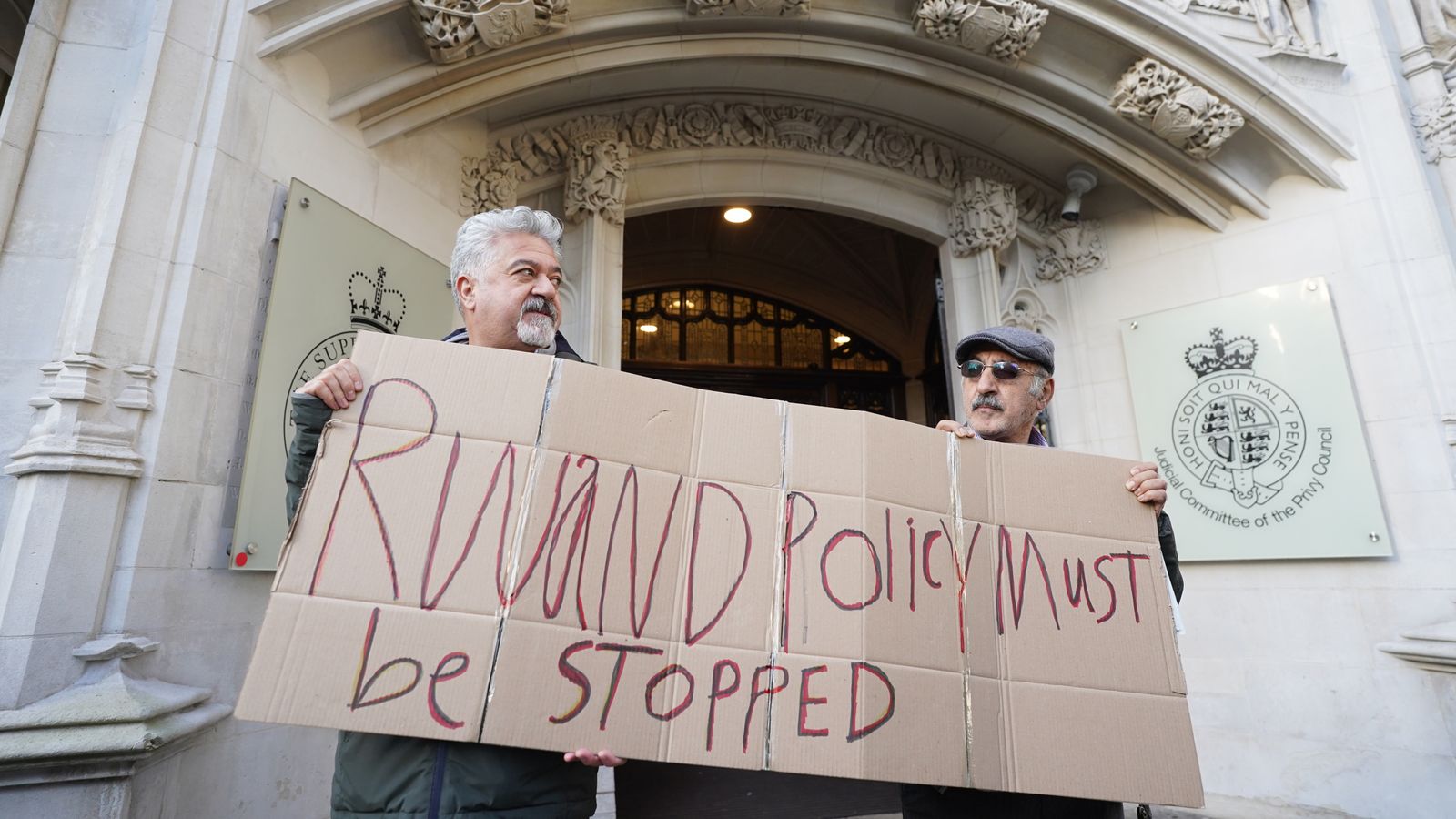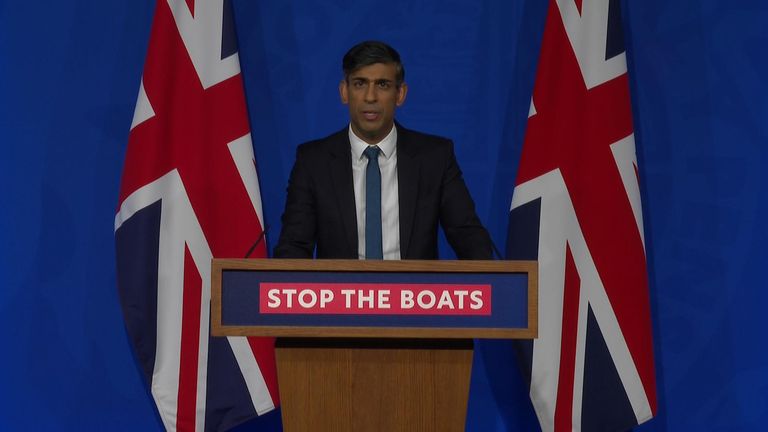Rwanda scheme ‘probably dead’, claims former Supreme Court justice


The government’s plan to deport asylum seekers to Rwanda is “probably dead” after it was ruled unlawful this week by the Supreme Court, one of its former justices has said.
The court confirmed its “unanimous” decision on Wednesday after 18 months of legal battles, saying those sent to the country would be at “real risk” of being returned home, whether their grounds to claim asylum were justified or not – breaching international law.
Politics live: Chancellor ‘wants to lower tax burden’
Prime Minister Rishi Sunak has pledged to push on with the scheme – which aims to deter asylum seekers travelling to the country on small boats – promising to turn the agreement with the east African nation into a legally binding treaty to allay the court’s fears, and to change the law in the UK to define Rwanda as a “safe country”.
And Chancellor Jeremy Hunt told Sky News’ Sunday Morning with Trevor Phillips it was the government’s “plan” to bring forward the new treaty and legislation quickly.
But speaking on the same programme, Lord Sumption said such measures “wouldn’t work internationally”, adding it was not a proposal to change the law “but to change the facts”.
Please use Chrome browser for a more accessible video player
1:44
Sunak presses ahead with Rwanda plan
MPs on the right of the Conservative Party have been up in arms since the ruling – including the recently sacked home secretary Suella Braverman, who has demanded the government withdraws from international treaties like the European Human Rights Convention or ignores the obligations to ensure the Rwanda scheme can go ahead.
But Lord Sumption called that option “extreme”.
Defending the court’s ruling, he said: “They carefully avoided the political broader merits of the Rwanda project. They confined themselves to looking at whether Rwanda was a safe place to send people to. That was the sole issue.
Advertisement
“And what they decided was that it wasn’t because Rwanda’s record of expelling refugees to places which are or may be unsafe was bad, and because Rwanda just didn’t have the cultural, administrative or political substructure which was necessary to perform an agreement of that sort.”
The peer added: “You can’t in a matter of weeks or months or even years simply turn a country like that into one with an impartial civil service, an independent judiciary and the whole administrative culture.
“Ultimately, what the main problem about this scheme is that it outsources to Rwanda the decision about whether people have refugee status or not. And Rwanda just is not up to the job.”
Read more:
Analysis: PM’s suggestion after Rwanda ruling is disingenuous
Explainer: What we know about the future of the Rwanda scheme – and what we don’t
Lord Sumption said changing the UK law to insist the country is safe may work “domestically”, but even if the government chose to ignore its obligations to international treaties initially, it would “presumably intend to comply” with final orders from the European court.
Asked by Trevor Phillips if the scheme was now “dead” as a result of the Supreme Court ruling, the peer said: “I think the current Rwanda’s scheme is probably dead, but we obviously have to suspend judgements until we see what this legislation or this new treaty looks like.
“There are other possibilities. They’re not terribly attractive, but they do exist.”
Asked if he was comfortable with a change in the law to ensure the Rwanda scheme could push ahead, Mr Hunt told Trevor Phillips: “Yes, that is our democratic right as members of parliament, we made that commitment to the British people.”
On small boat crossings, the chancellor said the government was “making progress, but we haven’t yet finished the job”, adding: “We’ve been very clear we will do what it takes because a government’s job is to secure borders.
“We don’t think the system at the moment is fair to the British people, and nor is it fair to the people who are being smuggled by these evil gangs. We should decide who comes here and not those gangs.
“We will do it lawfully. And if we need to change the law, we’ll do that.”
